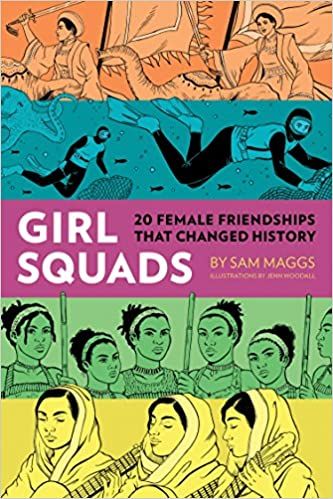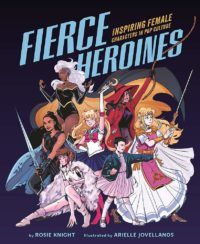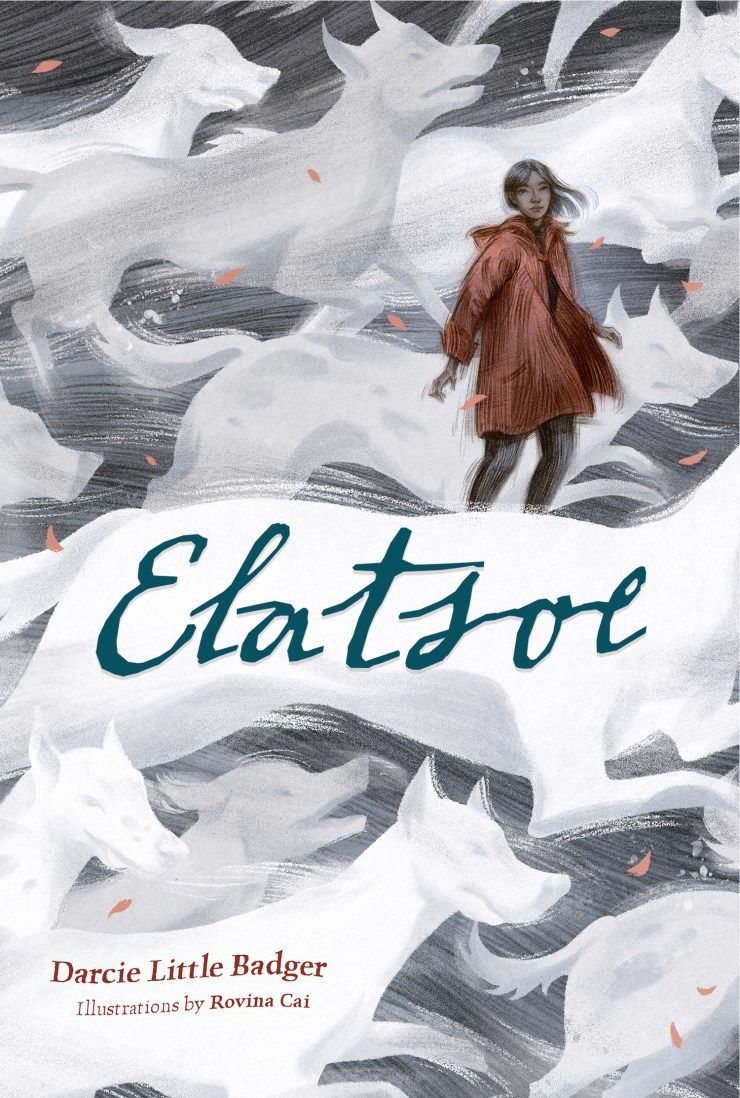Technically, I’m supposed to be writing about comics and these volumes…are not that. There are far fewer illustrations than one would find in a comic or graphic novel. Nor are they picture books; there are far fewer pictures than one would find in those as well, along with far more text at a much more advanced reading level. So how to categorize these absolutely gorgeous but not quite one thing or the other books?
Like comics or picture books, they’re a medium of their own that can be used to tell stories in pretty much any genre you can think of rather than a genre unto themselves.
Having written about comics and graphic novels for a while now, I’m confident in saying that they continue to suffer from the very persistent misdiagnosis of being identified as a genre despite the proliferation of comics that have absolutely, positively, and definitely nothing to do with capes and tights stories. There are memoirs and biographies, books about politics and romances, culture and mythology and sexuality, and even pronoun guides. Any story that can be told in prose can be told in comics form and while the tentacles of understanding are starting to proliferate in more brains than they could once reach, it’s still an uphill battle to convince a huge piece of the human pie chart that a graphic novel is, in fact, a “real book.”
I would like the very, very tiny section of the pie chart that cares about what I have to say to avoid the mental floor routine of having to repeat this same routine (if they had to do it once) and skip right to the part where you’re like, “illustrated books are totally books and here’s why,” when one of your parents-in-law looks disdainfully down at your son and tells them to bring a real book when they come over or when your mother sends white bread, mid-century fantasy to your house because she decides your daughter reading to much manga. Having the argument lined up saves you stress and also, maybe you don’t throw your phone when you get the, “Did the kids like the books?” text.
Ahem. Anyway.
Illustrated books are a medium and not a genre and here is your proof because…
…here are three illustrated books for your TBR that are each a. Different. Genre!
Biography, Pop Culture Encyclopedia, Fantasy. Three different genres expressed by a single medium and that’s just a small sample of the illustrated book possibilities. Argument made. Problem solved. BOOKS FOR EVERYONE!
Maggs and Woodall have delivered a very special type of biography in their book: those of groups that came together and changed the way the world viewed the place and power of women in: athletics, politics and activism, war, science, and the arts through the ages. These team-ups happened all over the world and in every sort of circumstance, in all different strata of society and on both sides of the law, yet they have one thing in common: they were all driven by women and the bonds between them.
The art in Girl Squads is done primarily in black, white, and various purple tones. Most of it are small portraits or symbolic icons, such as RBG banging her gavel, though as you flip through you’ll find larger splash pages on which Woodall has the opportunity to showcase how kinetic and subtle even a restrained palette can be. Bringing history to life in a way that enhances without distracting is a difficult task and she 100% nails it.
Genre: Pop Culture Encyclopedia
I love everything about this book. I love the diversity of the characters Knight chose to include and the properties from which she chose them. I love that some of them are fighty characters and some of them fierce because of their uncompromising compassion. I love that each of them has mastered a different skill, has come from a different place, lived a different life. The full color, full page portraits of each characters are bright and unabashedly individual with Jovellenos showcasing a remarkable variety of styles, each of which nods to the characters’ origins while placing them firmly in the modern era. I also very much appreciate that Knight included characters that appeal to each age group and across those groups from Garnet to Jesminder Bhamra to Zoey Johnson to Andi Mack to Leia Organa; there’s someone for everyone to look up to on these pages.
My 8-year-old stole Elatsoe from me so she could have a book group with her aunt. Which…I mean, target demographic achieved and locked.
In Little Badger’s debut novel, Elatsoe lives in an America slightly different from our one, one in which magic and monsters are shaped by the legends of those who live there. She can raise the ghosts of dead animals, as others in her Lipan Apache family were able, but not that of her murdered cousin for whose death she needs answers so she can protect her family.
Books are concrete things, and while a creator as talented as Little Badger can certainly craft any mood she wants with words alone, there’s something to be said for art’s reach and ability to trigger the visceral reactions of the lizard brain. Cai’s small, ghostly sketches as chapter headings may not take up a lot of physical space but the emotional charge they impart is haunted and haunting, staying with the reader long after they’ve turned the page of closed the book.


